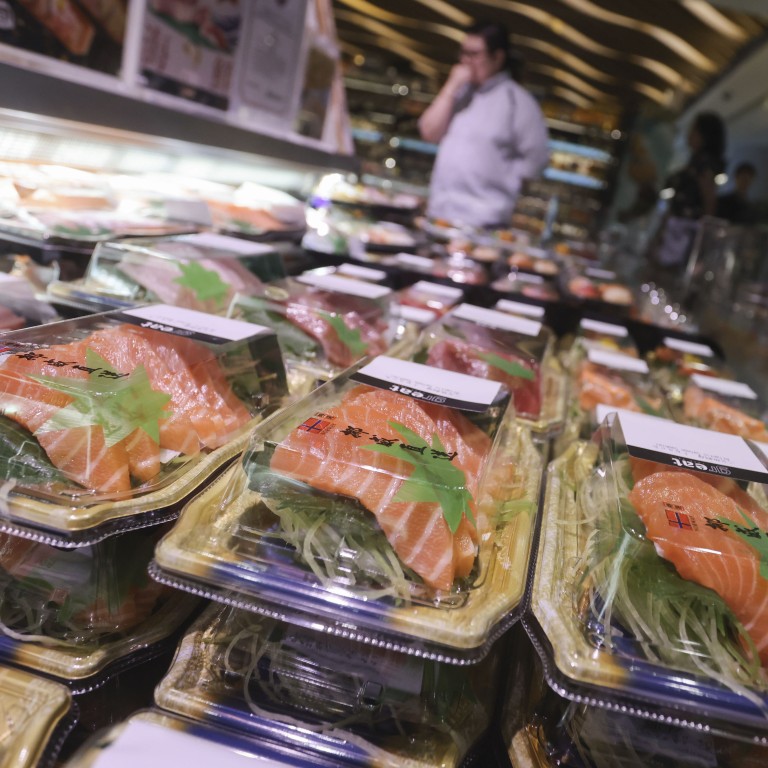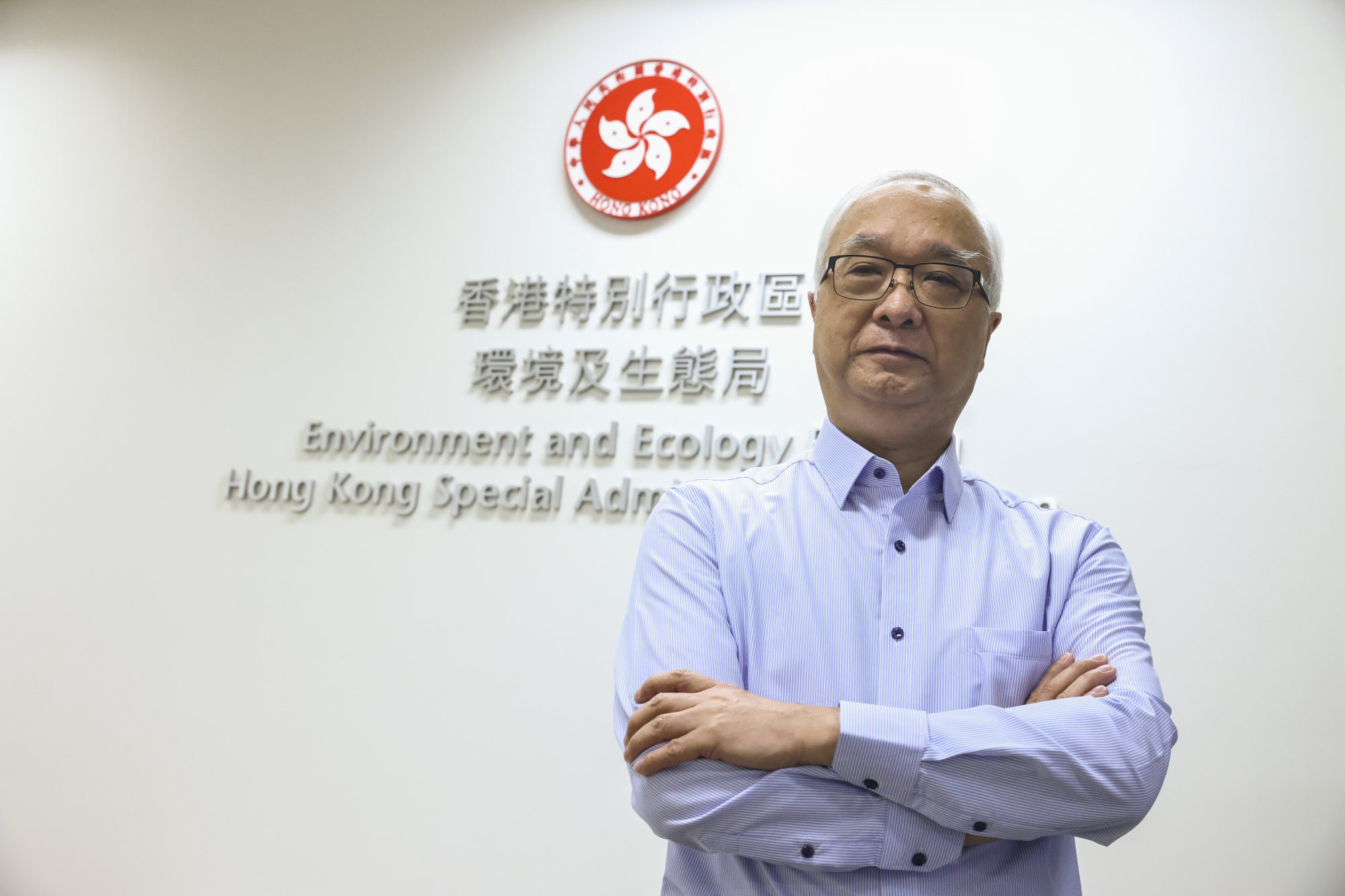
Fukushima discharge row: Hong Kong environment chief insists on Japanese seafood ban, says city may ease rules if Tokyo proves safety
- City’s environment minister defends ‘precautionary move’ to extend import restrictions to 10 Japanese prefectures, arguing 30-year discharge period comes with risks
- Saga centres on plan by Japan to release treated waste water from crippled Fukushima nuclear plant into sea
Secretary for Environment and Ecology Tse Chin-wan also argued it was hard for Japan to ensure no accident would happen over the 30-year discharge period. Industry leaders in Hong Kong have voiced concern the ban would affect the business of Japanese restaurants in the city.
Hong Kong’s Japanese eateries unsure about future over Fukushima seafood ban
Tse warned on a radio programme: “The waste water used to have direct contact with radioactive materials in the nuclear reactors.
“Japan says it has a purification device, but the device has to operate for 30 years. We want to know how it can be ensured this remains effective all the way, and that there won’t be any accidents and other human errors resulting in leakage.”
Hong Kong on Wednesday announced a plan to prohibit the import of aquatic products from 10 Japanese prefectures once the country begins releasing into the Pacific Ocean 1.3 million tonnes of treated waste water used to cool damaged nuclear reactors at Fukushima.

The proposed ban will cover all live, frozen, chilled, dried and cured aquatic products, including sea salt and seaweed, from Tokyo, Fukushima, Chiba, Tochigi, Ibaraki, Gunma, Miyagi, Niigata, Nagano and Saitama.
The restrictions would extend beyond the current mechanism since the nuclear disaster broke out in 2011, which sparked control measures against imports from five Japanese prefectures – Fukushima, Chiba, Tochigi, Ibaraki and Gunma.
Mainland China, meanwhile, has banned imports from 10 Japanese prefectures and required all shipments from other regions of the country to undergo full screening instead of spot checks.
Tse on Thursday said Hong Kong authorities were not following mainland China and had formulated the measures according to the city’s needs, risk assessment and system operation.
Once the discharge began, the government would look into data and facts on the effectiveness of Japan’s purification system and decide whether to relax the ban if Tokyo could guarantee food safety, he added.
He said officials from the Centre for Food Safety and the Agriculture, Fisheries and Conservation Department had conducted radiation testing on seafood samples daily since June, while the Observatory was monitoring changes in radiation in local waters.
Hong Kong will ban ‘large number of Japanese sea products’: John Lee
He added that as Japan had a clear source-tracing mechanism in its food supply, he was not worried merchants would risk importing aquatic products from prohibited areas by filling in false information.
The environment minister said restaurant operators should avoid ordering food from affected areas, adding the proposal would not negatively impact the sector given there were abundant alternatives from other places.
But Martin Chan Keung, a member of the board of directors of the Hong Kong Federation of Restaurants and Related Trades, told the same radio programme that up to 30 per cent of Japanese restaurants in the city would fold because of the prohibition.
He also urged the government to provide restaurateurs with more information about the proposed ban because up to 90 per cent of the food products were transshipped to Hong Kong through the Toyosu Market in Tokyo, one of the banned prefectures.
The Environment and Ecology Bureau said it had referred to control measures of other economies before devising the planned restrictions, and that the government had to evaluate all possible food safety risks in an all-round manner.
“Aquatic products merely re-exported through the relevant regions but not originating there will not be affected,” a spokeswoman added.
Japanese media said the release of waste water would commence as early as next month, although official confirmation of the date is still unclear.
Japan’s foreign ministry on Wednesday urged Hong Kong, its second-largest market for agricultural and fisheries exports after mainland China, not to take further regulatory measures and to make decisions based on scientific evidence.
Hong Kong could face higher seafood prices if Japan releases Fukushima water
Official figures showed that Japan supplied about 2 per cent of the city’s food last year, with 6.75 per cent of all seafood consumed locally coming from the country. Businesses offering Japanese goods have expressed concern over the prospect of a ban.
Hong Kong Japanese Food and Cuisine Association chairman Dennis Wu said a ban would deal a severe blow to importers and Japanese restaurants, especially premium outlets offering omakase, a type of meal involving dishes selected by the chef and made from fresh ingredients.
“Many importers of Japanese food have been looking for other suppliers in low-risk areas such as Kyushu to steer clear of the banned prefectures. The shipping cost will definitely be rising but this is not the biggest problem,” he said.
Wu said the import ban would also erode faith in Japanese food and stoke fears about consuming products from the country.
Shadow Cheung, who runs sushi restaurant Hiro Omakase in North Point, said the catering industry was already struggling as residents travelled abroad after the city’s borders fully reopened in February and local tourism had yet to recover.
Recent moves by Hong Kong and Tokyo had dealt a “second blow” to many Japanese eateries in the former following the pandemic, she said.
Last week, the International Atomic Energy Agency concluded that the waste water discharge would have a “negligible radiological impact on people and the environment” after a visit to Japan.
Mainland authorities said the nuclear watchdog’s approval had “failed to fully reflect views from experts that took part in the review”, expressing regret over the “hasty release” of its conclusion.
